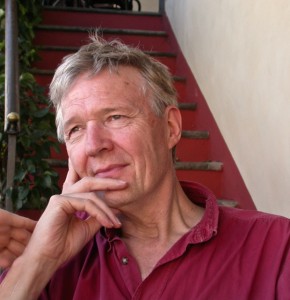
To describe Doug Gleave’s professional history as eclectic is an understatement. He’s been an engineer, a community worker, a lecturer, a recording engineer, a studio manager, an environmentalist and a social housing community consultant, amongst other diverse pursuits. However, mentoring has been the common thread to run through Doug’s colourful career:
“I’ve been mentoring for a long time, I just didn’t call it that. I was mentored myself too. There have been some key people in my life who have helped me through - people I could turn to for help and assistance.”
In the early days of his working life Doug was a trainee engineer for Rolls Royce working on the Anglo-French Concorde and it was here that he first learned the value of mentoring, from a mentee’s perspective:
“An older guy called Antony taught me technical engineering. He taught by example, by practice, by working together, by demonstrating and correcting. He wasn’t an official mentor, just another worker in the workshop. But there are lots of people who I remember now and think, ‘yeah, they mentored me.’”
At age 27, Doug became self-employed, setting up the name he still trades under today – Multium. During the 1970s and 1980s, Multium operated as a recording studio and ran courses for people in the music industry. The company’s remit was varied, but its ethos was always one of support and investing in personal development:
“I mentored lots of youngsters in the music industry who were either musicians or on the technical side. There are people I met when they were young who still get in touch and say ‘Doug, I’ve got this little issue coming up and I was just wondering if you could pass your mind over it and give me a few pointers.’ I do for them what Antony did for me at Rolls Royce.”
Later, while working in universities, Doug found that his natural aptitude for mentoring meant students would approach him for advice and support, often staying in touch once their studies were completed.
“There are former students I still get calls from. The questions are all broadly the same – ‘I’ve got an issue coming up. I think I know what I’m doing but can you give me a bit of support please?’ I don’t focus on the content of their jobs, but more on their process - the way they think through what they’re trying to do, and how they solve problems.”
With all this mentoring experience behind him, Doug came along to a Meet a Mentor event ready to engage with other mentors and offer his services to new mentees:
“I wanted to make sure I was singing from the same hymn sheet as other mentors and I also wanted to meet people who needed my services. Mentoring started off as a bit of a hobby but now it’s becoming something more structured.”
Doug, a natural teacher and someone who simply enjoys helping others, gains much satisfaction from the process of mentoring, and hopes to make it a semi-commercial enterprise. It’s very possible that in the not-too-distant future, he’ll be adding the words ‘professional mentor’ to that impressive portfolio of careers.


